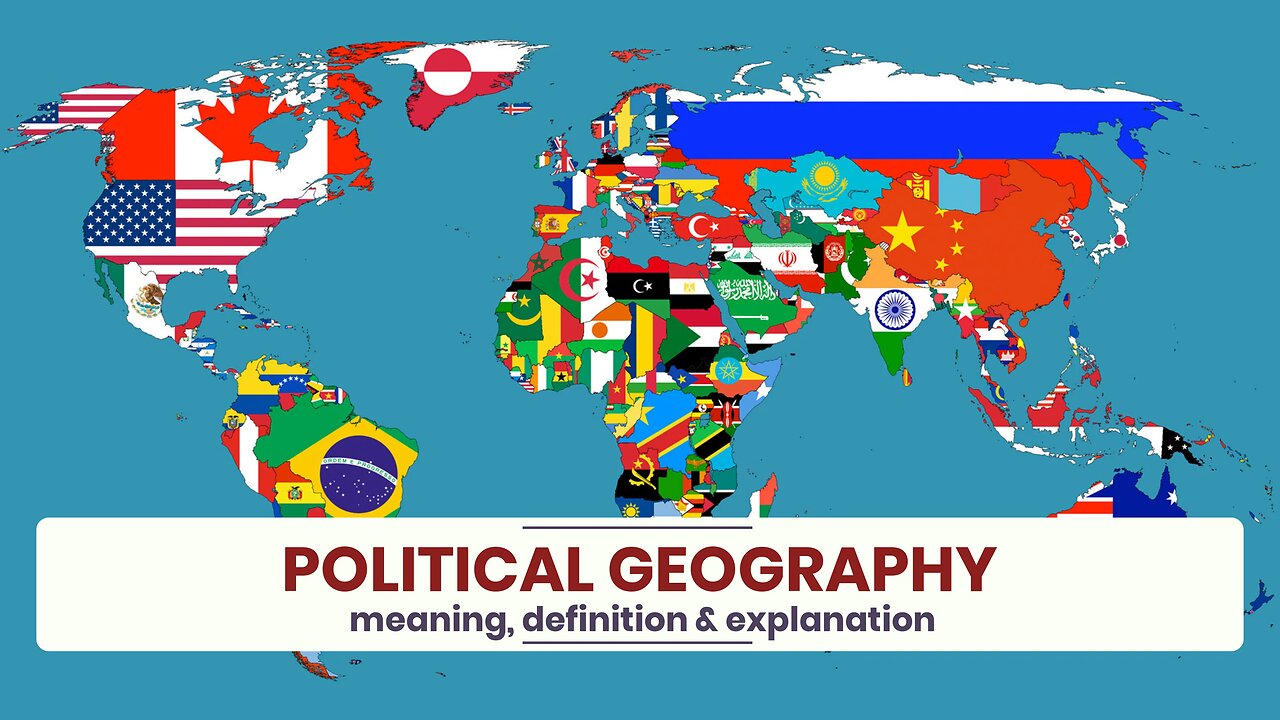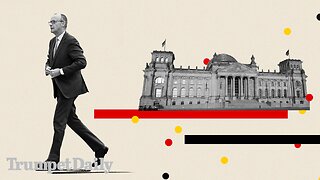Premium Only Content

What is POLITICAL GEOGRAPHY?
✪✪✪✪✪
http://www.theaudiopedia.com
✪✪✪✪✪
What does POLITICAL GEOGRAPHY mean? POLITICAL GEOGRAPHY meaning - POLITICAL GEOGRAPHY definition - POLITICAL GEOGRAPHY explanation. What is the meaning of POLITICAL GEOGRAPHY? What is the definition of POLITICAL GEOGRAPHY? What does POLITICAL GEOGRAPHY stand for? What is POLITICAL GEOGRAPHY meaning? What is POLITICAL GEOGRAPHY definition?
Political geography is concerned with the study of both the spatially uneven outcomes of political processes and the ways in which political processes are themselves affected by spatial structures. Conventionally political geography adopts a three-scale structure for the purposes of analysis with the study of the state at the centre, above this is the study of international relations (or geopolitics), and below it is the study of localities. The primary concerns of the sub-discipline can be summarised as the inter-relationships between people, state, and territory.
The early practitioners were concerned mainly with the military and political consequences of the relationships between physical geography, state territories, and state power. In particular there was a close association with regional geography, with its focus on the unique characteristics of regions, and environmental determinism with its emphasis on the influence of the physical environment on human activities. This association found expression in the work of the German geographer Friedrich Ratzel who, in 1897 in his book Politische Geographie, developed the concept of Lebensraum (living space) which explicitly linked the cultural growth of a nation with territorial expansion, and which was later used to provide academic legitimation for the imperialist expansion of the German Third Reich in the 1930s.
The British geographer Halford Mackinder was also heavily influenced by environmental determinism and in developing his concept of the 'geopolitical pivot of history' or heartland (first developed in 1904) he argued that the era of sea power was coming to an end and that land based powers were in the ascendant, and, in particular, that whoever controlled the heartland of 'Euro-Asia' would control the world. This theory involved concepts diametrically opposed to the ideas of Alfred Thayer Mahan about the significance of sea power in world conflict. The heartland theory hypothesized the possibility of a huge empire being created which didn't need to use coastal or transoceanic transport to supply its military–industrial complex, and that this empire could not be defeated by the rest of the world allied against it. This perspective proved influential throughout the period of the Cold War, underpinning military thinking about the creation of buffer states between East and West in central Europe.
The heartland theory depicted a world divided into a Heartland (Eastern Europe/Western Russia); World Island (Eurasia and Africa); Peripheral Islands (British Isles, Japan, Indonesia and Australia) and New World (The Americas). Mackinder claimed that whoever controlled the Heartland would have control of the world. He used this warning to politically influence events such as the Treaty of Versailles, where buffer states were created between the USSR and Germany, to prevent either of them controlling the Heartland. At the same time, Ratzel was creating a theory of states based around the concepts of Lebensraum and Social Darwinism. He argued that states were analogous to 'organisms' that needed sufficient room in which to live. Both of these writers created the idea of a political and geographical science, with an objective view of the world. Pre-World War II political geography was concerned largely with these issues of global power struggles and influencing state policy, and the above theories were taken on board by German geopoliticians (see Geopolitik) such as Karl Haushofer who - perhaps inadvertently - greatly influenced Nazi political theory.
-
 1:52
1:52
The Audiopedia
10 months agoWhat is EXECUTIVE DIRECTOR?
531 -
 UPCOMING
UPCOMING
Anthony Rogers
6 hours agoEpisode 365
101 -
 LIVE
LIVE
SpartakusLIVE
3 hours agoVerdansk SOLOS || #1 WZ MACHINE
163 watching -
 LIVE
LIVE
Geeks + Gamers
3 hours agoTuesday Night's Main Event
499 watching -
 LIVE
LIVE
Spartan (Pro Halo esports Player)
6 hours agoPro Halo Player | Back to Streaming | Warming up then scrims no comms | !optimization #ForTrav !ads !loginfix
130 watching -
 38:11
38:11
Anthony Pompliano
4 hours ago $1.93 earnedWhy Isn’t Bitcoin $150K If Everyone’s Buying?
51.2K11 -
 58:07
58:07
BonginoReport
4 hours agoCollege Campuses are Cesspools of Violence, Hatred and Division - w/ Hayley Caronia (Ep.42)
108K68 -
 6:13:02
6:13:02
StoneMountain64
8 hours agoWildest Warzone CUSTOM Games
60.4K2 -
 2:18:07
2:18:07
Robert Gouveia
4 hours agoSupreme Court VICTORY! Trump CELEBRATES! Diddy's Trial Strategy!
31.4K13 -
 55:27
55:27
LFA TV
9 hours agoMerz Will Not Be Germany’s Strongman | TRUMPET DAILY 5.6.25 7PM
16.1K2